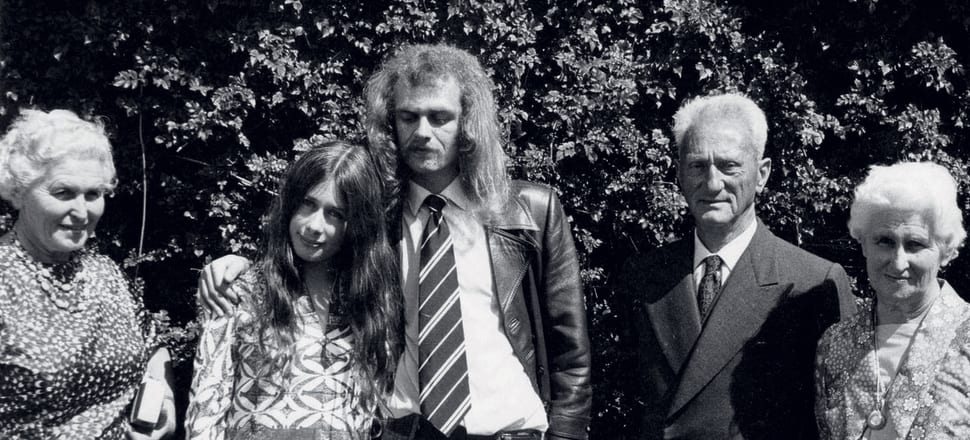
The great painter Dame Robin White on her Ngāti Awa father
My grandfather, Albert Bennett White, was born in Whakatāne, the son of Abraham Bennett White, an English immigrant trader, and a Ngāti Awa woman of high rank, Mereana (or Mere te Wia), the daughter of Tikitu. Abraham Bennett White was killed during the Hauhau uprising in the 1860s and Mereana, perhaps fearing for the safety of her children, sent them to the care of a relative in Whitianga.
My grandfather and his brothers had a boat building business in Whitianga and my father, Albert Tikitu White – who was to become the first Bahá’í of Māori descent – was born there in 1895. He grew up to learn the skill of working with wood and from his father he also learnt the art of cultivating kumara. Like my grandfather, he also distinguished himself as a successful athlete.
In 1916 my father was away to war with his brothers, serving in Egypt and then on the front line in France. He and my mother, Florence Dunlop, began their married life in Auckland. There followed a few years in Taupō and then, at the height of the Great Depression, the family acquired some land in Kerikeri where, at the time of my birth in 1946, my father was a farmer.
The horrors of war had a profound effect on my father. I was raised on stories about what went on at the front line and my father spared me none of the dreadful details. In those conditions of close combat my father observed, as he described it, Christians fighting Christians and the result was a loss of his faith – not a loss of his faith in God or of his belief in Christ, but rather a loss of his faith in the institutions of Christianity. He realised the desperate need for peace but saw no hope in a divided church providing the solution to conflict. My father was, therefore, receptive to any ideas that addressed the issue of peace and unity and, soon after learning about the Bahá’í Faith and becoming informed of the teachings of Bahá’u’lláh concerning world unity and the oneness of humanity and of religion, my father and mother enrolled as members of the Bahá’í community. That was in 1948, in Whangārei, where my parents had moved soon after my birth. They went on to raise me in their chosen faith and remained committed Bahá’ís until they passed to the next world.
My father's social conscience, ignited at the front line in France, inflamed by his experience of the Depression and forged by what he learnt from his study of Bahá’ís Writings, took expression in numerous meetings held in our home, where the discussion was about world events, the need for peace, the solutions offered in the Bahá’í Writings, and involvement with organisations and activities that aligned with his views. He made friends with a wide assortment of people of different ethnic backgrounds and was a member of the Peace Council in Auckland and of the Esperanto club.
My father believed in the value of education, and was a strict user of “correct speech”. He was not a speaker of te reo Māori but insisted on the proper pronunciation of Māori words and place-names. He was loving and kind but could also be impatient and quick to anger. No doubt as a result of the influence of Bahá’í teachings, I was spared the physical punishments sometimes experienced by my older siblings but I grew to know that my father was not a man to be argued with. He appreciated order, precision and excellence and it is the expression of these qualities in his life that lives on in my memory of him.
Dame Robin White, her sister Margaret (now 'Alá’í), grandchildren and great-grandchildren remain strong Bahá’ís. Her memoir continues our week-long coverage of the year's best illustrated book, Robin White: Something Is Happening Here edited by Sarah Farrar, Jill Trevelyan and Nina Tonga ($70, Te Papa Press and Auckland Art Gallery Toi o Tāmaki), available in bookstores nationwide. On Monday, Steve Braunias wrote about "the beautiful collaboration" between White and Sam Hunt; yesterday, New Zealand's best art writer examined White's famous painting of a fish and chip shop; and a lengthy review appears tomorrow.







